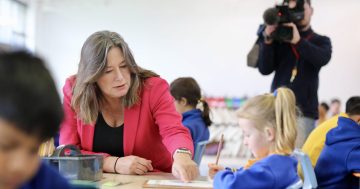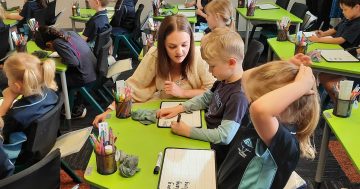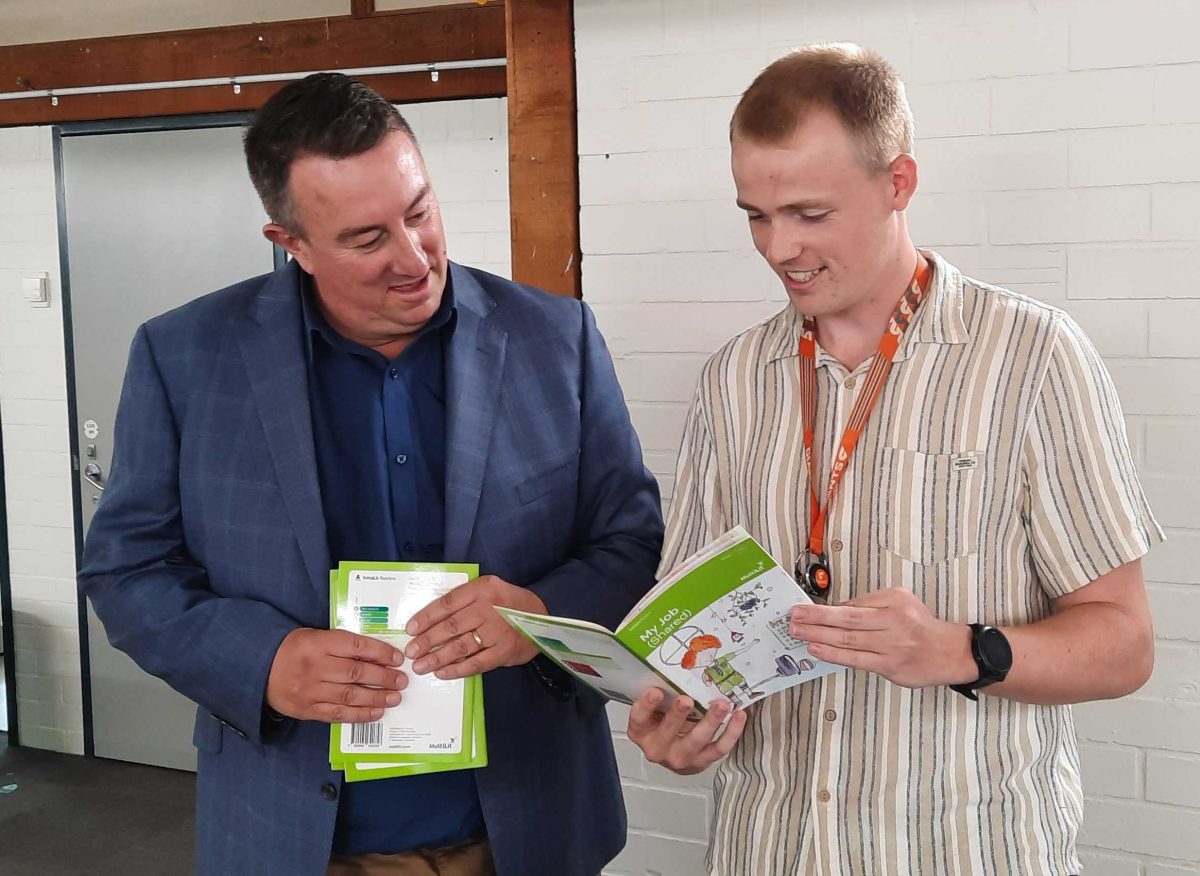
Calwell Primary principal Ben Roberts and teacher Jack Beattie look through some decodable readers, being introduced across ACT public schools this year. Photos: Ian Bushnell.
Canberra public school students return to a changed classroom this week as the Education Directorate continues its phased rollout of the literacy and numeracy reforms.
So what can they expect this term?
Some have already had a taste of the explicit teaching practices, phonics-based lessons and phonics checks introduced last year as part of the Strong Foundations program based on the recommendations of the literacy and numeracy inquiry expert panel.
There will be more structured, interactive and hands-on lessons with new learning tools such as decodable readers and evidence-based phonics programs including Macquarie University’s InitiaLit, which covers the first three years of school.
New teachers such as Calwell Primary’s Jack Beattie have been undergoing professional learning preparing for the new era. He is excited by the opportunities to improve his teaching skills, and the structure and consistency it offers.
“I think it’s going to lead to more effective lessons within the classroom because we’re given a structure of where we need to go and what we need to be doing, but it’s still giving us that freedom to teach lessons in our own way,” he said.
Consistent lesson plans and assessment across the school and system also supported teachers and students, especially when transferring to another school, he said.
“I think the kids get more out of the lessons as well, especially when they see their friends are doing the same thing, even though they’re in a different classroom,” Jack said.
“It creates conversations and a bit of buzz within the learning environment.”
That consistency also made it easier for him to draw on the support of his peers.
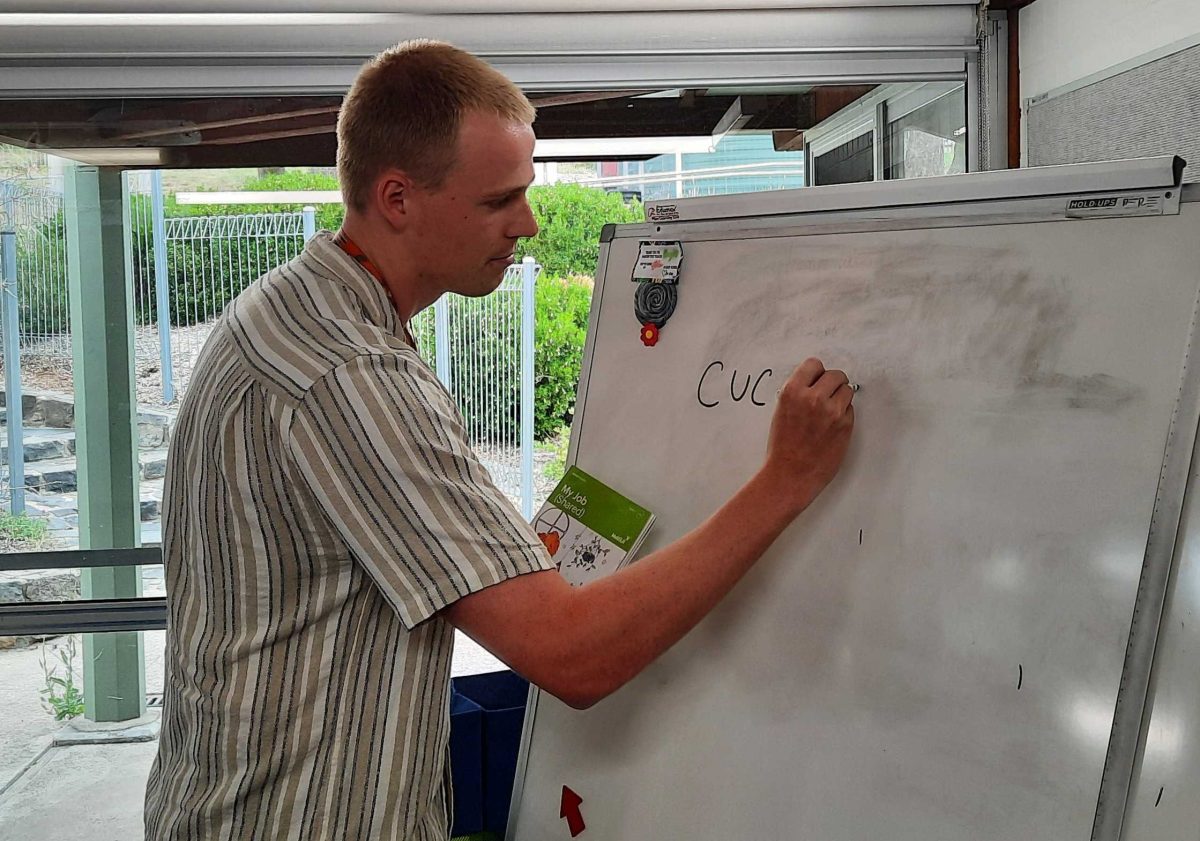
Jack Beattie believes the changes will make him a better teacher.
Calwell principal Ben Roberts, who has been leading literacy reform at the Tuggeranong school for the past year, said the feedback from parents, teachers and students had all been positive.
Mr Roberts said the provided teaching programs meant his staff would spend more time teaching and less time creating their own lesson plans, and enjoying their work more.
The new approach was introduced to kindergarten classes last year, the students enjoyed it and the results were promising.
Mr Roberts said two parents were teachers themselves and were surprised at the level of reading their children had achieved.
“It is interactive. There’s games, there’s quality literature involved,” he said.
The decodable readers, criticised by some for not offering quality reading, were stepping stones to students accessing more challenging literature.
Mr Roberts said the readers stressed certain sounds in words and progressed in complexity through the years.
An important feature was the comprehension check at the end, so teachers could know students had understood what they had read, which was another criticism of some phonics-based programs.
Mr Roberts said that “check for understanding” had been stressed during professional learning so no-one slipped through the cracks.
“When we are teaching a new concept, we want to know that the students have understood what we’ve just taught, we need to know that they’re walking out the door that day having that understanding,” Mr Roberts said.
That feeds into the multi-tiered support system recommended by the panel, something Calwell has been developing over the past year.
Mr Roberts said this included an intervention program that identified problems early and ensured students received the appropriate support, including InitiaLit.
“We’ve seen a really big improvement for those kids and a difference in the data,” he said.
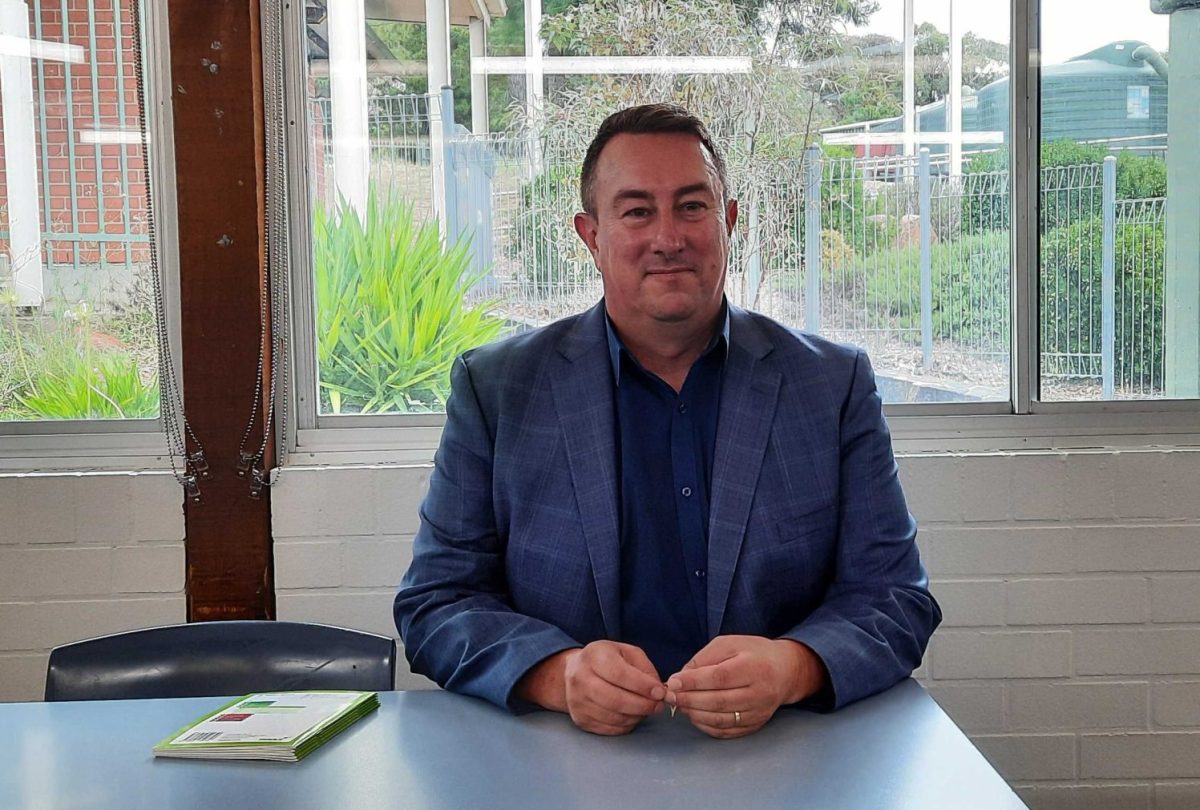
Calwell Primary principal Ben Roberts says feedback from parents, teachers and students has been positive.
More participation will be asked of students in the new environment. Mr Roberts said that meant teachers needed to develop positive relationships with their students, another discussion point during professional learning.
“Kids being able to trust the process, the way things are set up in the classroom and teaching strategies, is so important for their psychological safety,” he said.
That meant no ambushing of students, with a teach-first approach.
“It’s teach first and review and come back to it, and then check for understanding, but making sure that the kids have the information to be able to report back and understand,” Mr Roberts said.
It’s about being obvious and specific.
For Jack, a former swimming teacher, it’s also about establishing a rapport and a class culture where it’s OK to be wrong because they will realise that they will only learn from their mistakes and where to go next.
“It’s important to show kids that right from the start,” he said.
He believed having that buy-in from students would help him challenge them with more difficult tasks and concepts.
Mr Roberts said Calwell this year would focus on implementing its writing strategy developed last year and developing ones for numeracy within the Strong Foundations framework.
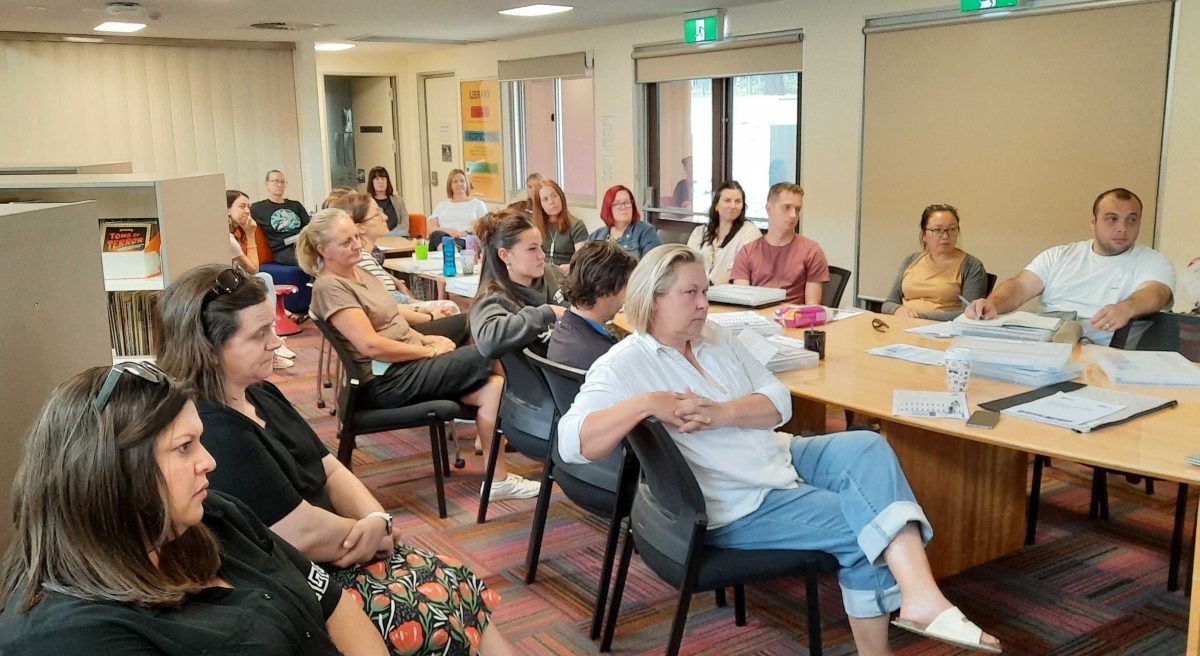
Ready for change: Teachers at a professional learning session at Calwell Primary.
The directorate’s Acting Deputy Director-General Angela Spence said targeted professional learning, including simulated classes, had been rolled out across schools to prepare for the term, with more emphasis on the primary years.
“Our primary years teachers and our early childhood teachers spent quite a considerable amount of time looking at how we teach literacy and numeracy,” she said.
“The strategies that were recommended through the expert panel report, how we translate that into the teaching of literacy and numeracy, so that they could walk away with some really sort of tangible artefacts, tools and ideas to put into their classroom from day one.”
For early numeracy, that will be the use of “concrete materials” such as blocks or beads, and in literacy the decodable readers and InitiaLit.
Ms Spence said last year’s phonics check pilot showed that more work was needed on how to use the information to produce maximum impact on learning outcomes.
She said teachers said they needed information immediately to be able to adjust their learning programs, so a key piece of work in 2025 would be to crunch the data and provide that information to them as quickly as possible.
The Year 1 phonics test is due to be implemented in Term 3.
Ms Spence said that while some programs had been implemented last year, much of the design work would be happening through 2025.
“In our early years, definitely, and probably over the course of the year, our students and our families are going to see a more consistent way in which we deliver,” she said.
“Between classes in schools is probably where our families will see that first, but also then more broadly from school to school over the course of the year.”
Strong Foundations is being phased in over four years.












